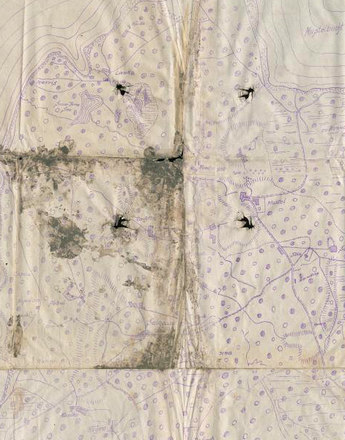Individual peace initiatives – Julius Meinl and Heinrich Lammasch
Julius Meinl, chairman of the food concern of the same name, was one of the few people to realistically anticipate the disastrous food and supply situation in the Austrian half of the Monarchy and to deduce from this that Austria-Hungary needed to embark as soon as possible on peace negotiations.
To that end he founded the Austrian Political Society (ÖPG) in December 1915 as a platform for discussion and the exchange of plans for peace. It was aimed at a defined clientele, as the lists of participants in the discussion evenings organised by the Society illustrate. They were primarily doctors, lawyers, professors and politicians, including criminal and international law expert Heinrich Lammasch, jurist and politician Josef Redlich and the German philosopher and teacher Friedrich Wilhelm Förster. Together with Julius Meinl these three men travelled in December 1917 to Switzerland to meet the American professor George Davis Herron, a close confident of President Woodrow Wilson, and discuss possibilities for a compromise peace.
Since autumn 1916, Meinl had written numerous leaflets about the supply situation in the Monarchy, the peace aims and the associated need for mutual concessions by the belligerents. They were debated at the ÖPG discussion evenings and, through Heinrich Lammasch, even considered in the Ministry of Foreign Affairs.
The Austrian Political Society believed that international peace was closely linked with national peace within the Monarchy. Only when this had been achieved could Austria-Hungary lead by example and, through Emperor Karl, who was styled as the “prince of peace” because he had not been involved as head of state in the declaration of war in 1914, commence talks on a general peace. Heinrich Lammasch in particular was of the view that Emperor Karl was the ideal person to bring about peace, also on account of his political acts, such as the reconvening of the Reichsrat in May 1917 or the dismissal of the Hungarian prime minister Istvan Tisza. Lammasch was convinced that the Emperor could gain the respect and approval of his own people and of neutral and “enemy” powers. In February 1918 he therefore attempted again through Professor Herron to contact the American government, but Lammasch‘s efforts and those of Julius Meinl failed because of the opposition of prime minister Count Ottokar von Czernin and Austria-Hungary’s German ally.
Translation: Nick Somers
Benedikt, Heinrich: Die Friedensaktion der Meinlgruppe 1917/18. Die Bemühungen um einen Verständigungsfrieden nach Dokumenten, Aktenstücken und Briefen, Graz/Köln, 1962
Gütermann, Christoph: Die Geschichte der österreichischen Friedensbewegung 1891–1985, in: Manfried Rauchensteiner (Hrsg.): Überlegungen zum Frieden, Wien 1987, 13–132
Morgenbrod, Birgitt: Wiener Großbürgertum im Ersten Weltkrieg. Die Österreichische Politische Gesellschaft, Wien 1984
Quotes:
„Together with Julius Meinl these three men …”: Gütermann, Christoph: Die Geschichte der österreichischen Friedensbewegung 1891–1985, in: Manfried Rauchensteiner (Hrsg.): Überlegungen zum Frieden, Wien 1987, 55
„Since autumn 1916, Meinl had written …“: Gütermann, Christoph: Die Geschichte der österreichischen Friedensbewegung 1891–1985, in: Manfried Rauchensteiner (Hrsg.): Überlegungen zum Frieden, Wien 1987, 56
„Heinrich Lammasch in particular was of the view …“: Gütermann, Christoph: Die Geschichte der österreichischen Friedensbewegung 1891–1985, in: Manfried Rauchensteiner (Hrsg.): Überlegungen zum Frieden, Wien 1987, 62
„In February 1918 he therefore attempted again …“: Gütermann, Christoph: Die Geschichte der österreichischen Friedensbewegung 1891–1985, in: Manfried Rauchensteiner (Hrsg.): Überlegungen zum Frieden, Wien 1987, 63
-
Chapters
- “Lay down your arms” – Bertha von Suttner, the most prominent Austrian peace activist
- ‘The Austrian Society of Friends of Peace’– a brief episode?
- Alfred H. Fried and the peace movement during the war – censorship and derision
- ‘The League of Austrian Women’s Associations’ and the end of peace activities
- The Hague or the “betrayal” of the warring nation
- ‘… and tomorrow we will start cheerily canvassing for peace.’
- Peace and social issues
- The idea of the ‘peace-loving woman’?
- Peace and the Church – Thou shalt not kill!
- Peace and language – peace and the Esperanto movement
- Para Pacem – an Austrian peace movement with a difference
- Individual peace initiatives – Julius Meinl and Heinrich Lammasch
- ‘… surely this war must end some time?!’









